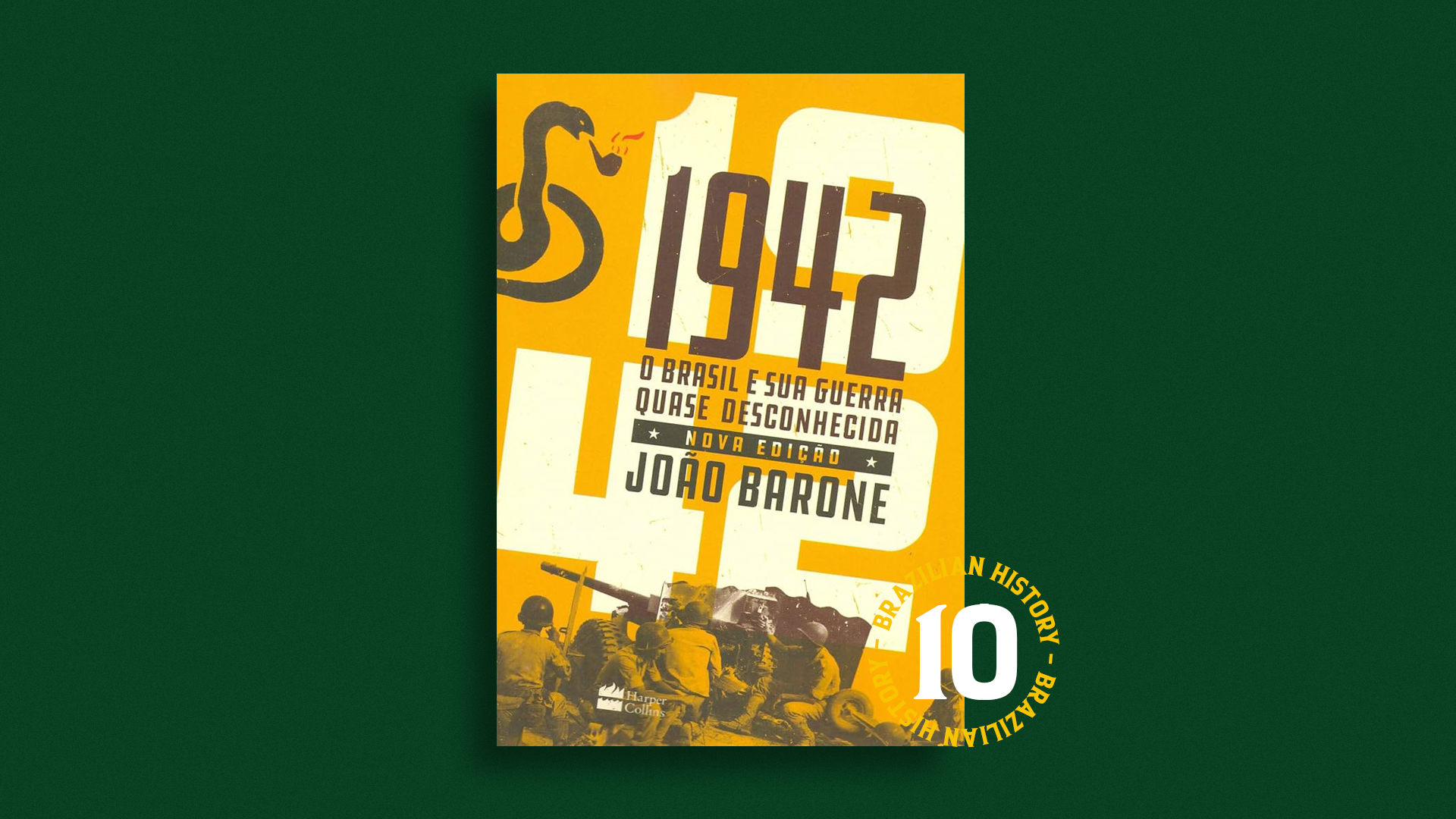The book 1942: Brazil and Its Almost Unknown War, written by João Barone, offers a detailed analysis of Brazil’s participation in World War II, a chapter of our history often overlooked. Barone, a musician and researcher, is also the son of a former Brazilian Expeditionary Force (FEB) soldier, and his work reflects a personal and thorough approach to the experience of Brazilian soldiers who went to war.

The narrative is divided into two main parts: first, the historical and diplomatic context that led Brazil to ally with the Allies during World War II, and second, the direct involvement of Brazilian troops in the conflict. In 1942, Getúlio Vargas’s government found itself pressured between the influences of the United States and Germany, especially after German submarines attacked Brazilian ships, which generated public outrage and was a crucial factor in the country’s decision to declare war on the Axis.
Barone also explores the challenges faced by Brazilian soldiers, who often had to deal with inadequate training, limited weaponry, and poor physical and psychological preparation. Nevertheless, the FEB went on to play a significant role in important battles, particularly in the mountains of Italy, where Brazilian pracinhas participated in the famous capture of Monte Castelo and other strategic operations.
The author enriches the account with veterans’ testimonies, historical archives, and photographs, allowing readers to understand the soldiers’ daily lives and the complexity of the war. Barone not only sheds light on historical events but also pays tribute to the pracinhas, highlighting their bravery and the legacy of their participation. The book is essential reading for anyone wanting to better understand Brazil’s role in the global conflict, respectfully and meticulously addressing Brazil’s involvement while encouraging reflection on the memory and recognition of FEB veterans in our history.
The book 1942: Brazil and Its Almost Unknown War, written by João Barone, is structured into three chapters, preceded by a preface and divided into various subchapters that organize and delve into each theme. It is a work rich in historical details and revelations. The preface stands out on its own, with the author sharing his personal experience and frustration with his father’s reticence about his participation in the war, which sparked his interest in uncovering Brazil’s role in this global conflict. This initial account establishes an intimate and emotional connection that endures throughout the narrative.
The author’s writing is educational and objective. At the outset, he clearly states the book’s purpose, introducing characters and historical contexts that paved the way for Brazil’s entry into the conflict. The layout, detailed and organized, deserves praise as it facilitates following historical threads and interweaves parallel events in a visually pleasant way.
The author takes a critical stance on Getúlio Vargas’s government, addressing the authoritarian bias of his regime. He does not hesitate to use the term “dictator” to describe Vargas, highlighting his anti-democratic actions during a time of uncertainty. This political analysis adds depth to the work, helping readers understand the contradictions of a government that aligned with democratic powers while maintaining a dictatorship at home.
One of the book’s greatest contributions is its gallery of photos. Strategically placed, these images bring the described scenes to life, providing a visual and historical immersion that enhances the reading experience. One example is the communication difficulties faced by Brazilian soldiers, few of whom spoke English, a challenge met by American assistance with arms, training, and strategic translations, a crucial collaboration for operational success.
The author presents the geopolitical context of the time, such as Albert Einstein’s escape from Germany and his famous letter to Roosevelt, warning of a nuclear threat. This episode spurred the Manhattan Project, which ultimately led to the creation of the atomic bomb. In this way, the author connects Brazil’s role to the broader events of the war, immersing the reader in a global panorama.
The post-war period is handled sensitively, revealing Vargas’s neglect of Brazilian heroes. The soldiers, known as pracinhas, returned to Brazil disarmed and forbidden from wearing their Brazilian Expeditionary Force (FEB) medals and uniforms, an attempt by the government to control public opinion and prevent potential uprisings. Additionally, war veterans did not receive necessary support to cope with the physical and psychological trauma resulting from combat.
1942: Brazil and Its Almost Unknown War also highlights the collective ignorance that formed after the conflict ended. In a recent survey conducted at a university, most students were unaware of the FEB, even confusing its acronym with a spiritualist federation. This finding reveals a failure in preserving the historical memory of the FEB, a critique the author maintains throughout the text. The book also recalls the financial cost of the war for Brazil, detailing the steep price paid by the country for its involvement: around 21 billion Cruzeiros, a debt paid off over 12 years. Lastly, the author reflects on the pracinhas’ uniforms, which combined Brazilian attire with pieces provided by the United States, a symbolic image of the alliance and national resilience.
In the epilogue, the author reflects on the places Brazilian soldiers passed through and the history within those regions, suggesting that the topic would warrant a second book, given the richness of stories. He also criticizes the Italian government for refusing to donate the land where the monument honoring the pracinhas stands, a common practice for Allied nations.
1942: Brazil and Its Almost Unknown War is essential reading for those seeking to understand Brazil’s role in World War II and the internal consequences of this participation. The work rescues an almost forgotten memory and opens the door to re-evaluating the war’s impact on the country and its soldiers, standing as a milestone in Brazilian historical literature.
Reference: BARONE, João. 1942: O Brasil e sua guerra quase desconhecida. Brazil: HarperCollins, 2018.

Matheus Araújo
Matheus Araújo is the founder and editor of Brazilian History. Born in Rio de Janeiro and holding a degree in Advertising and Marketing, his passion for history led him to enroll at the Federal University of the State of Rio de Janeiro, where he is currently pursuing a degree in History Education.
